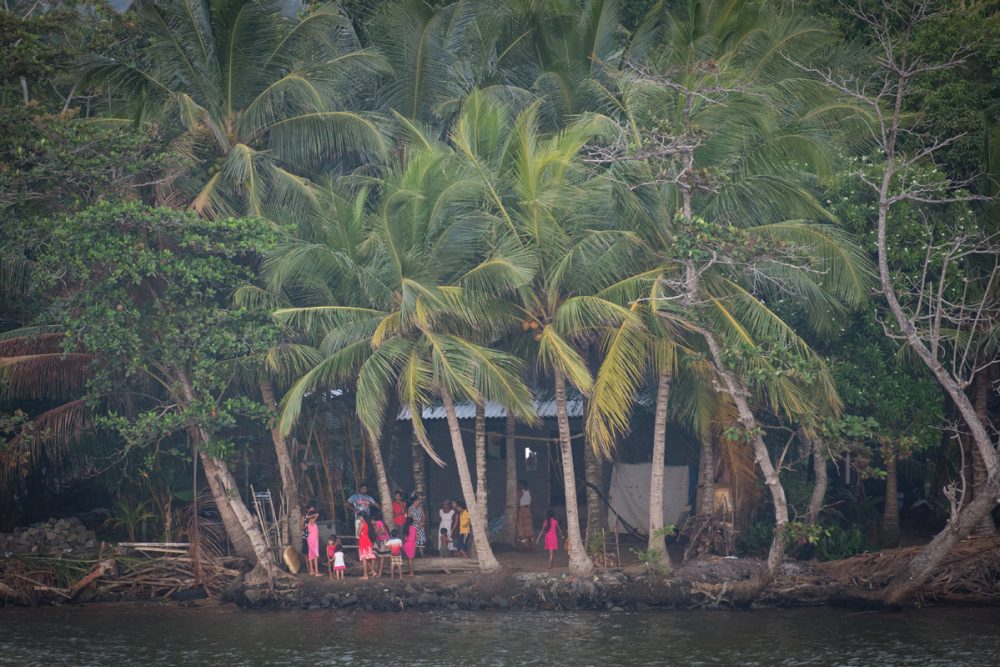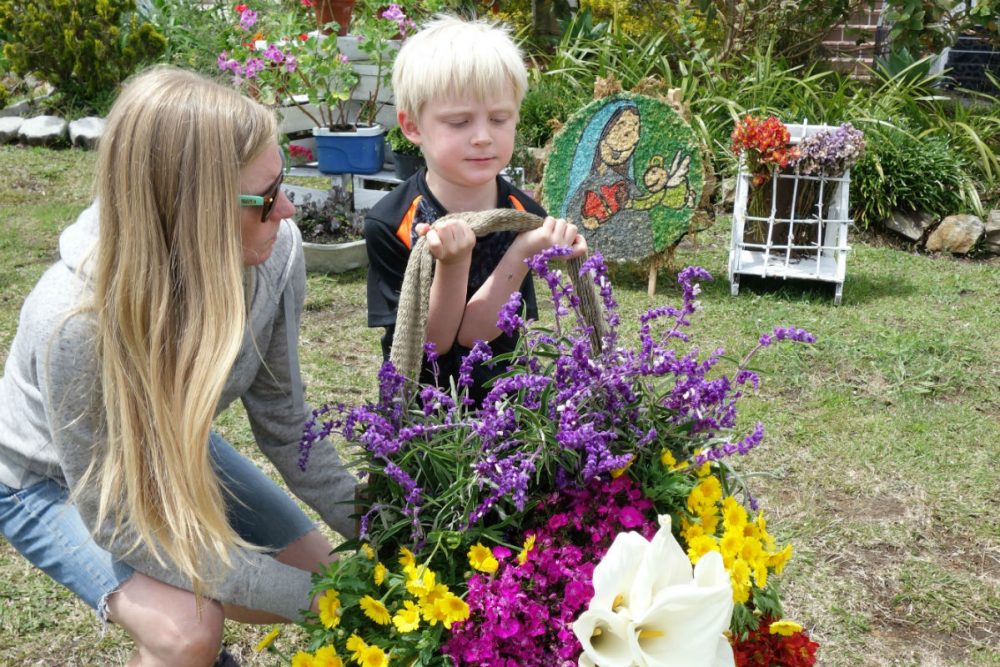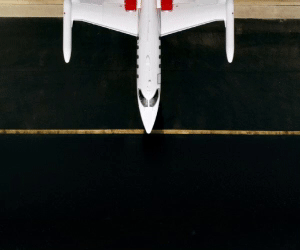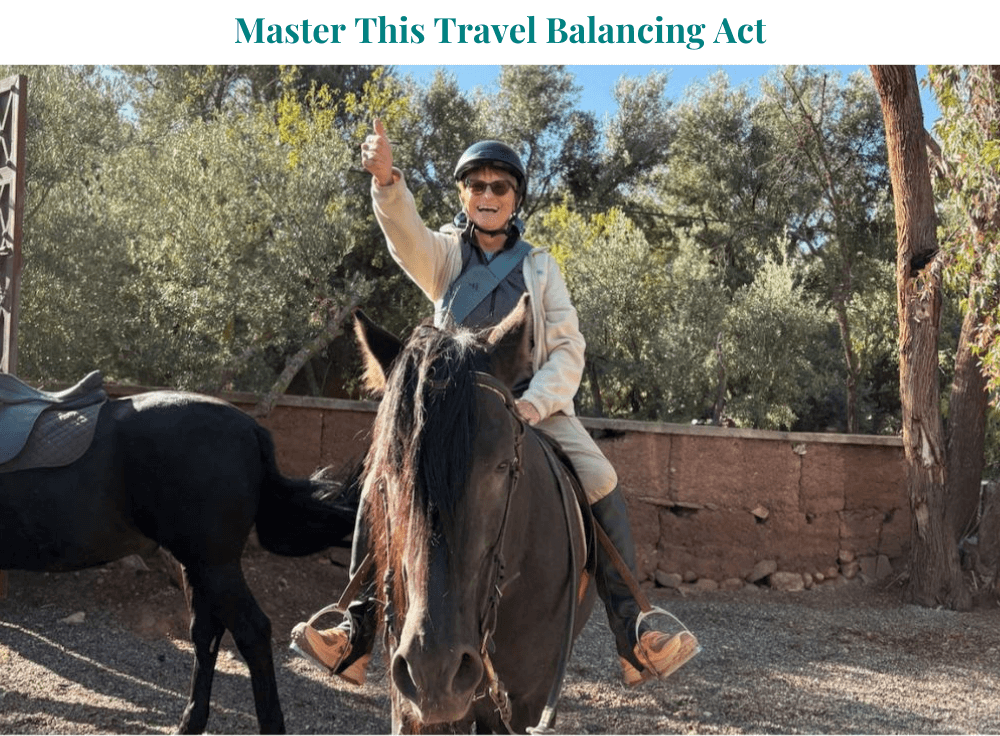Mongolia Blew My Mind. And I Can’t Wait to Go Back.
One of my last trips before the pandemic hit was to Mongolia. I’d been dreaming about going there ever since I met Jalsa Urubshurow at a work event about six or seven years ago. He spun me a vision of a night sky, stretching uninterrupted from horizon to horizon and filled with stars—one of the darkest places in the world, since Mongolia is one of the least populated countries. I’d studied Genghis and Kublai Khan in college, so the country already had a draw for me, but I’ve been fascinated by astronomy since I was a kid, and that conversation sealed the deal. When I finally made the trip this past October (planned by Jalsa, now on Wendy’s WOW List), I got my stars. I also got a lot more, including the 20th anniversary of the Golden Eagle Festival (a celebration of a centuries-old tradition), an education in Mongolian art (from ancient calligraphy to modern street art), and several delicious meals via Ulaanbaatar’s unexpected vegan restaurant scene (who knew??) and some very accommodating private chefs. Currently, Mongolia is closed to travelers, but Jalsa’s team has announced itineraries for 2021 and 2022, and while Mongolia is never exactly crowded to begin with, I can imagine that it will feel even more special and personalized to be in those first few rounds of visitors. It’s a unique place, with a culture that feels ancient and modern at the same time. I knew going in that I would love it there no matter what I encountered, but it still managed to surprise me on several occasions. These are some of my favorite moments:
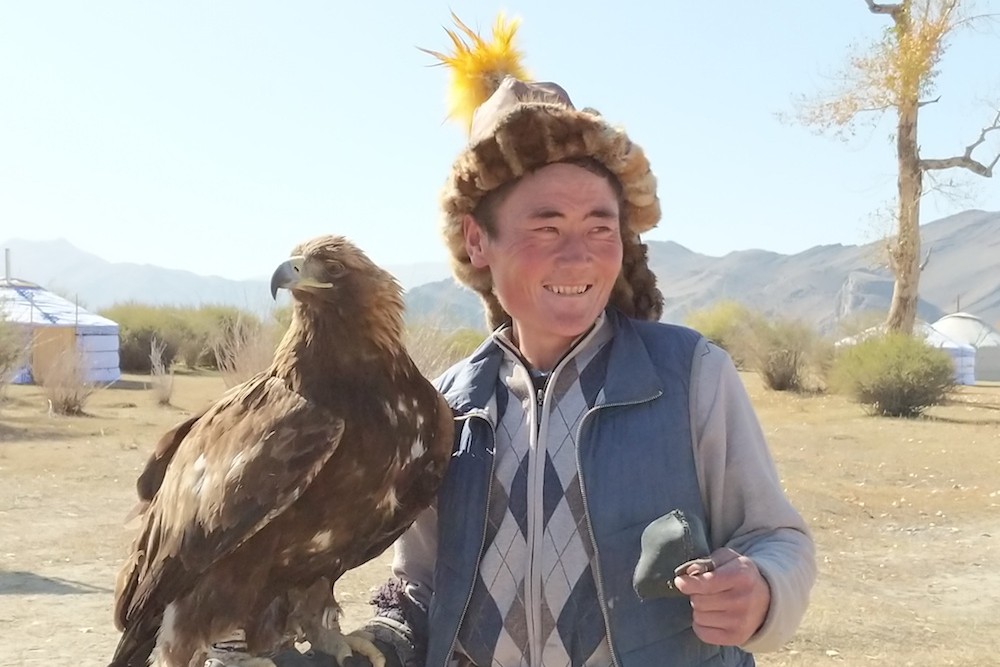
At the 2019 Golden Eagle Festival in western Mongolia, 124 contestants entered the two-day fest of games that show off participants’ eagle-calling abilities, horsemanship, strength, and fashion sense. Ranging in age from 9 to 82, they came from both Mongolia and Kazakhstan, the only two countries where this centuries-old hunting tradition is practiced. It was the 20th anniversary of the festival when I visited. Jalsa cofounded it after realizing that the tradition was dying—there were only 20 or 30 families with eagles two decades ago. Now there are a few hundred.
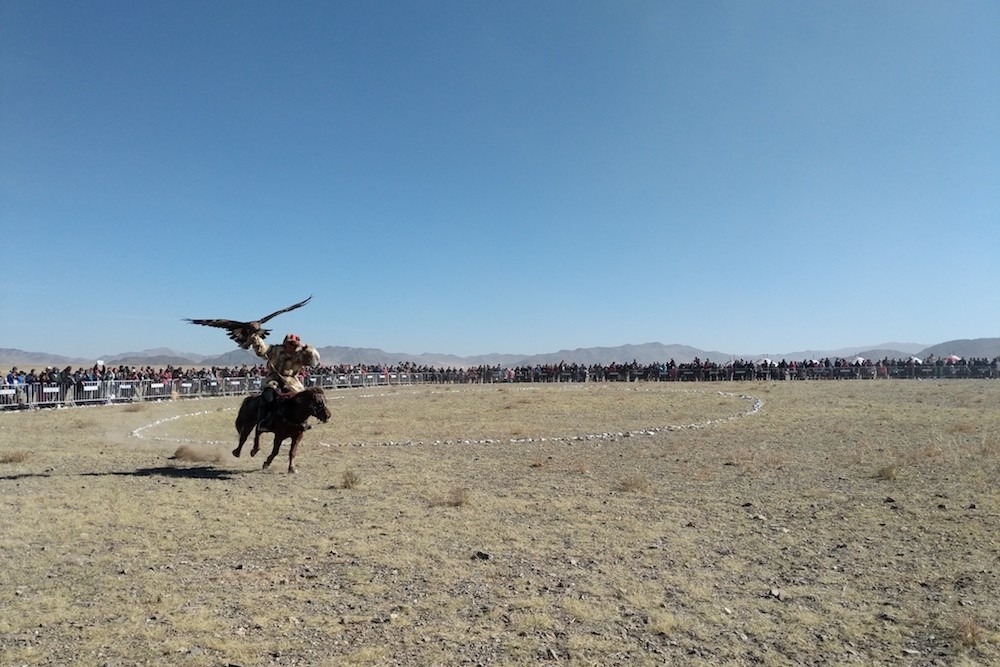
The field is a giant rectangle at the base of a small mountain. For the first game, every competitor rides their horse onto the field; one of their helpers has already climbed up the mountain with their eagle. The helper releases the bird and the hunter calls to the eagle, trying to entice it to land on his arm in the fastest amount of time. The birds are beautiful as they circle and then dive and swoop onto the hunter’s raised right arm (it’s always the right arm).
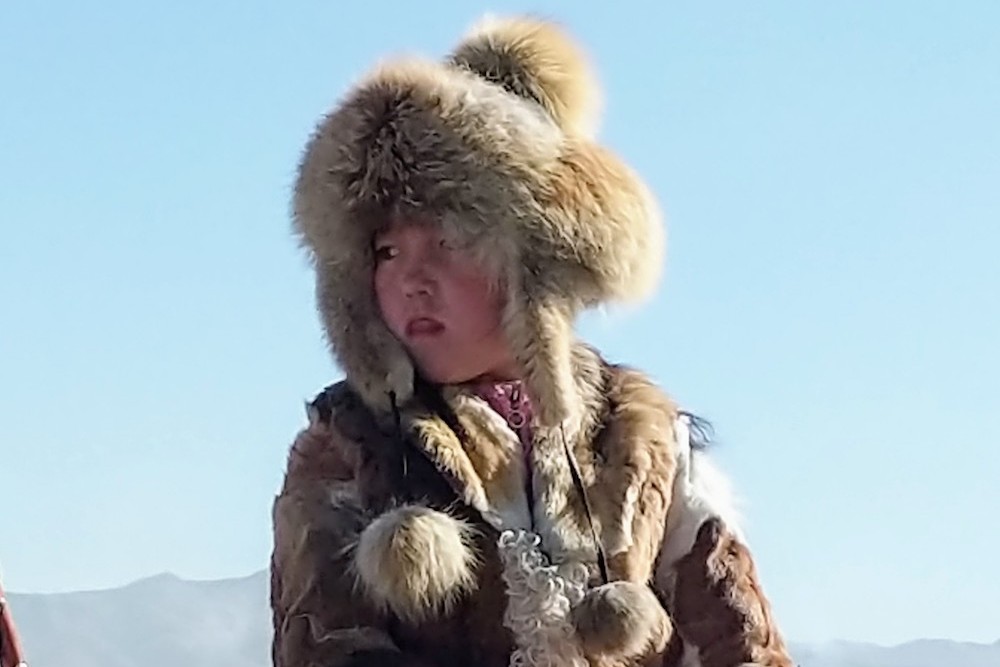
This is Aimulder. She’s 9 and was the youngest competitor; the oldest was 82. She told me that her grandfather and father are both eagle hunters so she wanted to be one too.
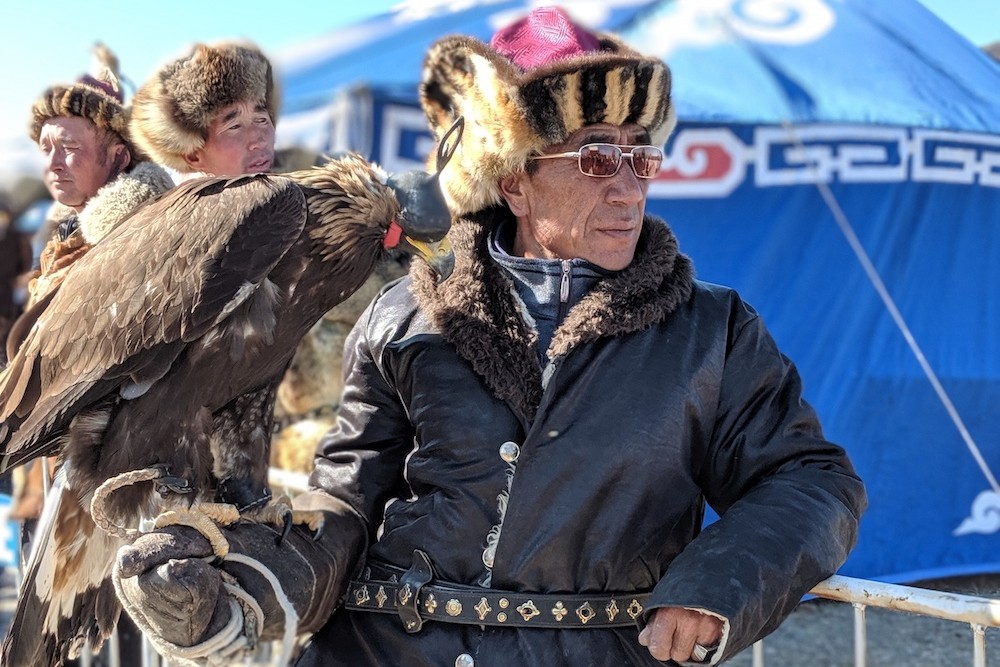
This is the world’s coolest eagle hunter, obviously. And this is an example of what was so special about this festival. There was no line between participants and spectators—either literal or figurative. You might be watching the latest round from the benches around the field and then look to your left and you’d see an eagle hunter and his horse just hanging out there with you—or just an eagle. We were all there together.
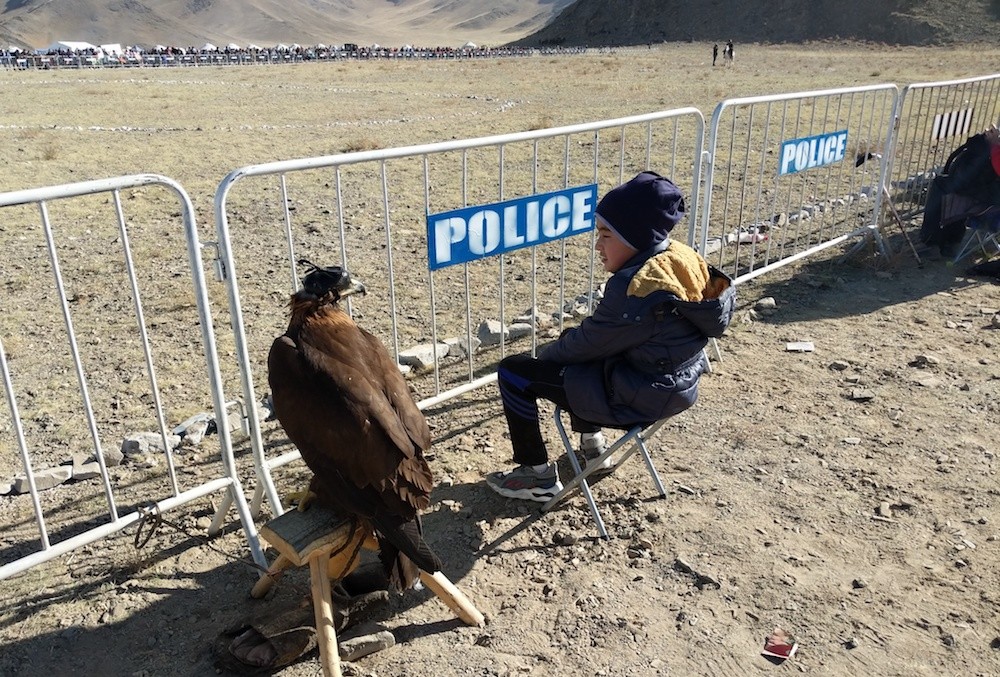
A friend from my group put it like this, fondly: “It was less organized than I expected, and I loved that. It felt more like someone’s agricultural fair that we got to take part in. It was very welcoming as well.” In fact, everyone in my group used words like that: welcoming, open, inviting, authentic. For a festival that’s been the subject of a major motion picture, 2016’s The Eagle Huntress, I expected it to be a little more, well, “over.” It definitely was not.
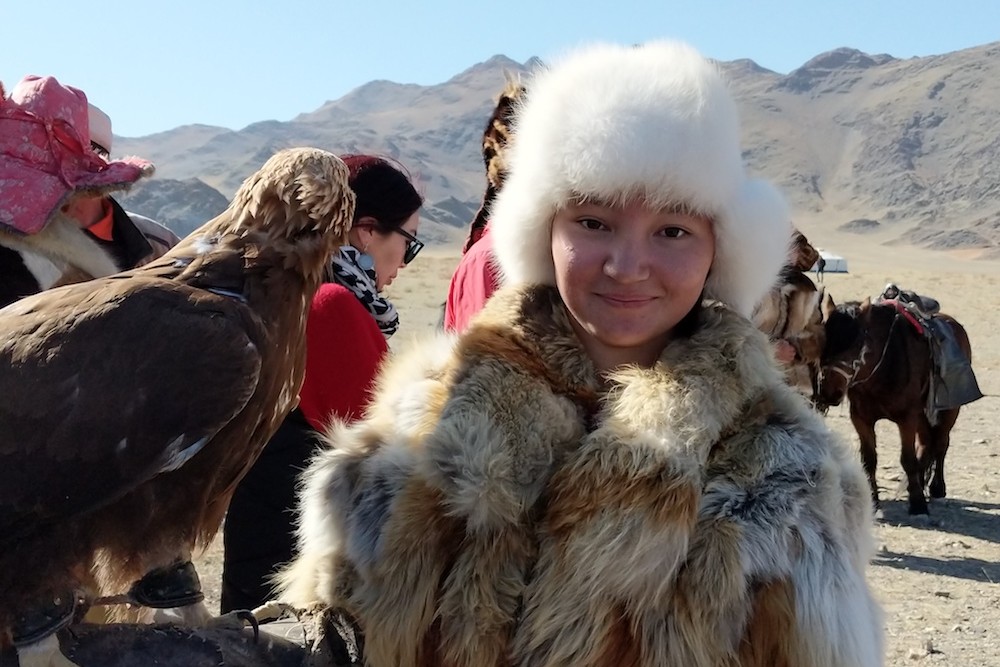
I took an informal poll of English-speaking tourists and most had come to the festival after seeing or hearing about The Eagle Huntress. Even though the star of that film wasn’t there in 2019 (she’s in high school in Kazakhstan), rumors went through the crowd each day saying that she was, and confusing her with this girl, the talented 14-year-old Akhelik, who ended up coming in 4th place out of all the contestants.
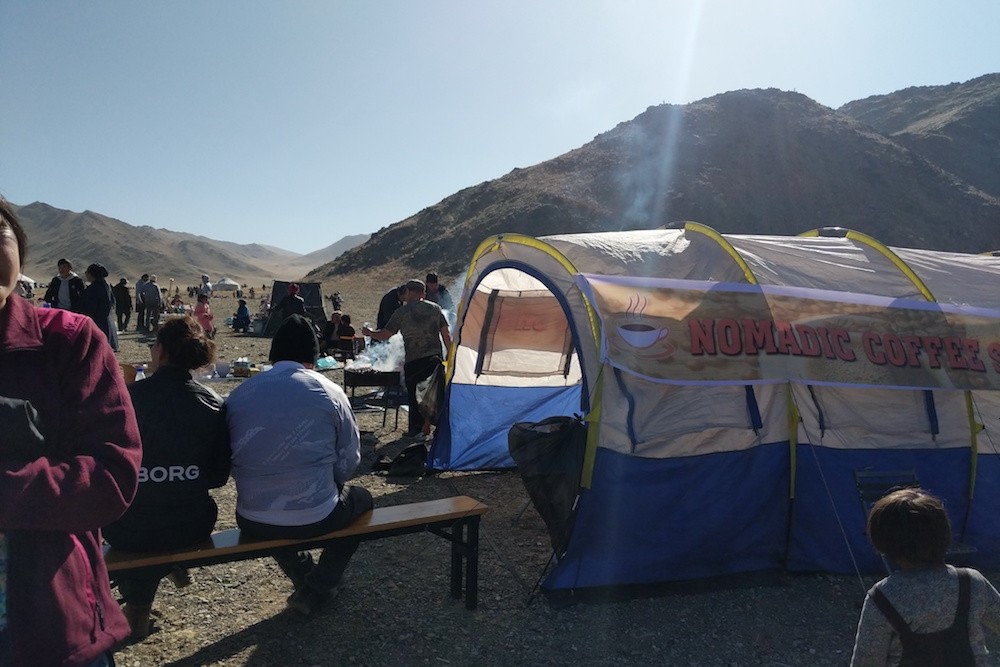
A makeshift marketplace with vendors, food, and games popped up around the fairgrounds. Families from the area arranged their wares and handmade crafts on the ground: tapestries, fur hats, felt slippers, wool bags. Others ran open-air food spots—in addition to a salted-yogurt-drink stand and lots of grilled meat, I passed a pizza shop in a ger (round mobile tents used by the nomad community). Still others set up boardwalk-style games, like throw-the-ring-over-the-post and dart-the-balloons. This was the Nomadic Coffee Shop, which by all accounts makes a damn good espresso. It will likely be a Starbucks in two years. Get to this festival now!
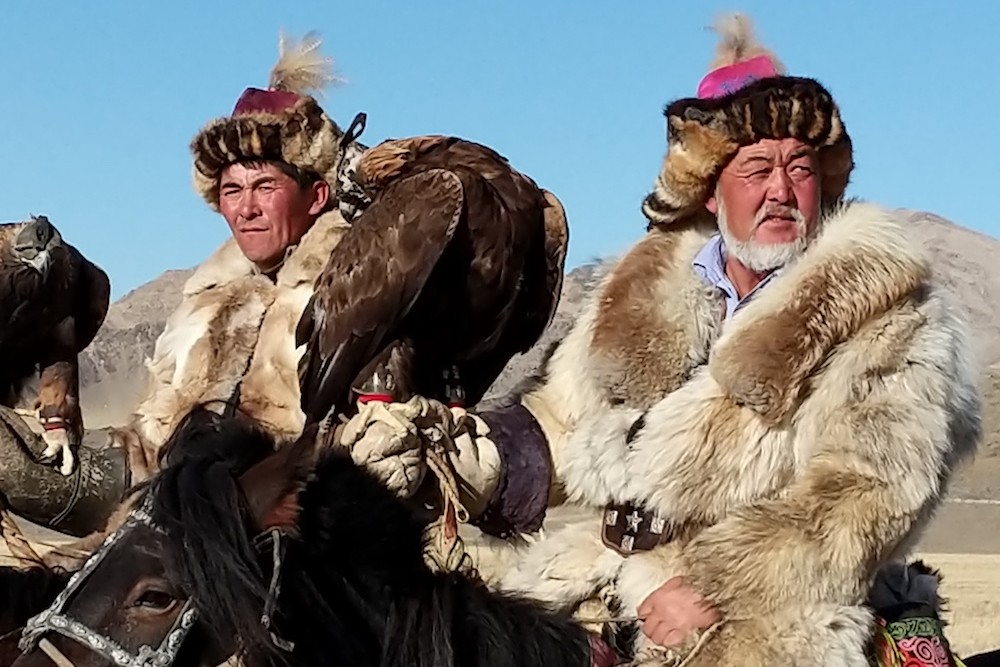
The hunters are judged on a few criteria: how well their eagle responds to their calls, their horsemanship, the beauty/strength of the horse, and the impressiveness of their traditional costume (which Kazakhs still wear in their daily lives). They are also judged on the speed with which their eagle completes the task. The man on the right here is Chaimurat. He won the festival twice, and if he’d won in 2019 he would have had the most wins of anyone. But he didn’t. Instead, the winner was a man named Arman, thanks to his fast time when calling his eagle to his arm (less than a minute). I later found out that he and Chaimurat had earned the same number of points from the judges, but Arman’s time was better, so he took first place while Chaimurat came in second. They both got medals—and so did the eagles.
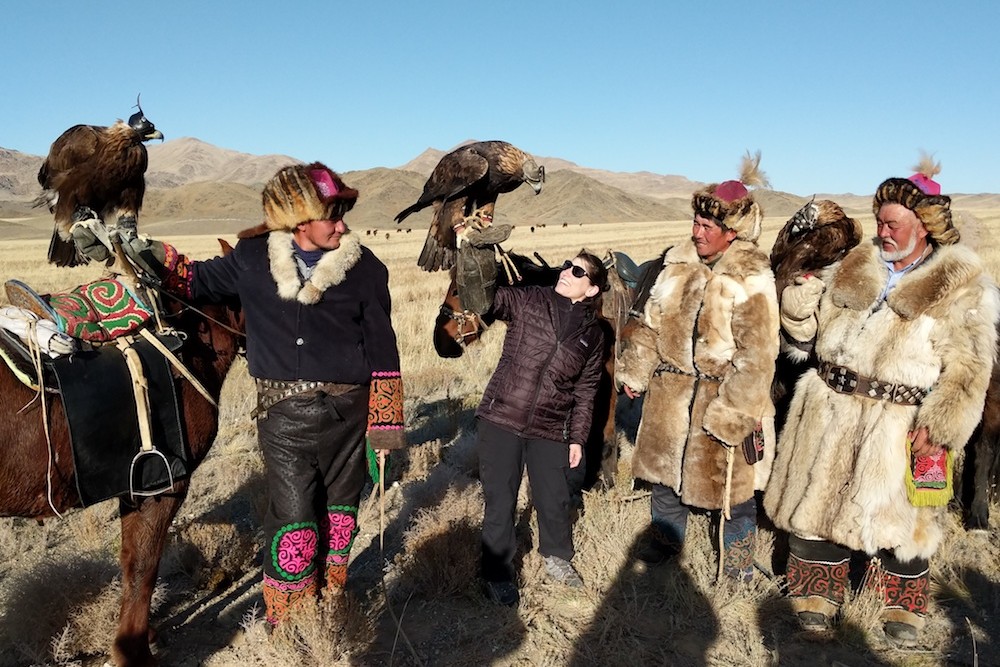
Jalsa’s work as a co-creator of the festival means that he has developed professional and personal friendships with various interesting people in the area. As a result, we got to meet Chaimurat and other eagle hunters before the competition even began. As they rode their horses over the mountains on their way to the fairground, we waited for them on the “road” one morning. When they arrived, they let us hold their birds (eagles are heavy!) and ask questions about their lives and work. The personal interaction provided context for what we’d see at the festival over the next two days, and made me feel like I had a personal connection to the people out there on the field. Plus, I felt super cool that I knew the champion. He’s a celebrity, after all. (Bonus connection: The young man who drove my 4×4 to the festival was the same guy who announced the Mongolian-to-English translations during the judges’ presentations, so I got to talk to him about the points system, how eagle hunters are evaluated, and how Arman edged out Chaimurat!)
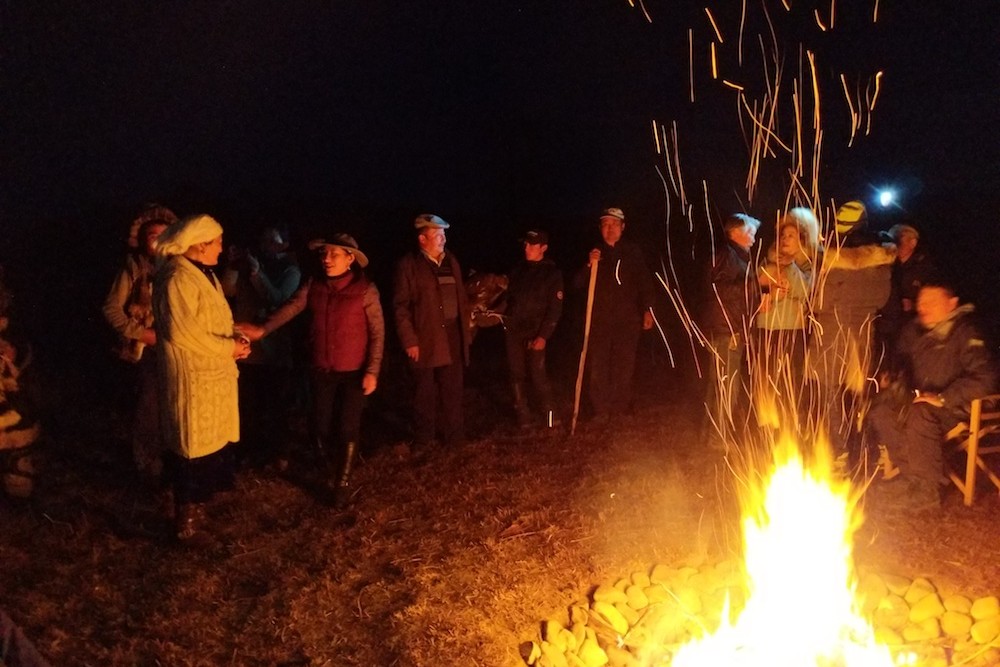
This is what happens the night after the Golden Eagle Festival, if you know the right people. You get a bonfire cocktail party by the river with Mongolian beer, a performance by a three-generation family of dombra players, impromptu folk songs around the fire with a fun-loving bunch of locals (including the former champion eagle hunter and his beribboned eagle), and dancing!
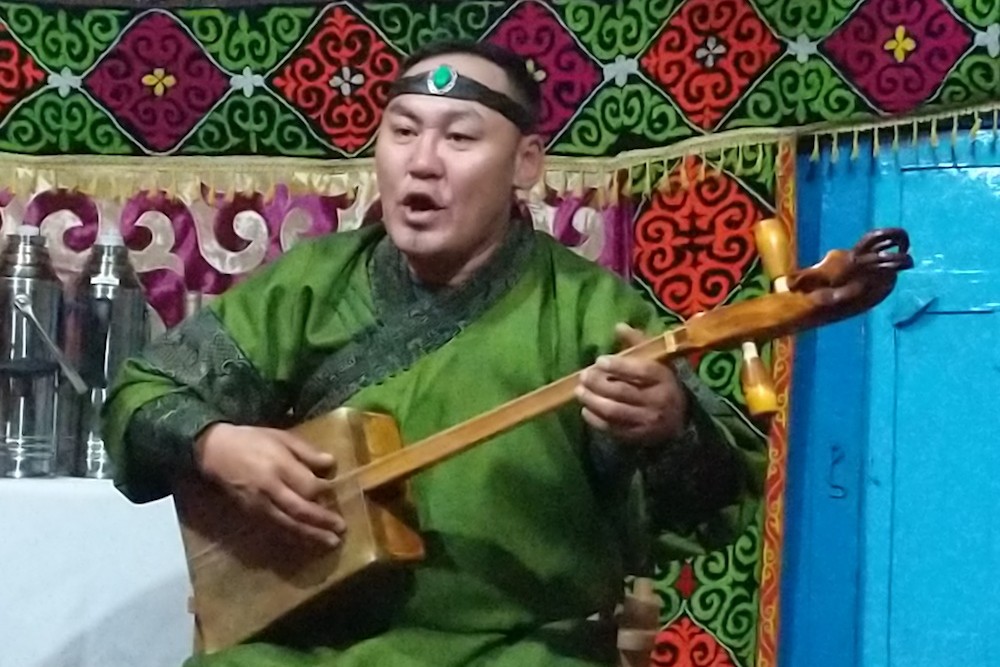
Jalsa also arranged (and joined us for) a private concert by a Mongolian throat singer. Yes, you can go to public concerts of this kind of thing in Ulaanbaatar, but our singer sang just for the 12 of us, in our cozy dinner ger, and then spent as much time as we wanted answering our questions. “Jalsa’s appearance on our trip and his role in the country—and what that has brought [to our experience]—is special,” said one of my fellow tour group members. Her husband added, “We’ve never been with someone where the head of the travel company is so integrated into the culture.”
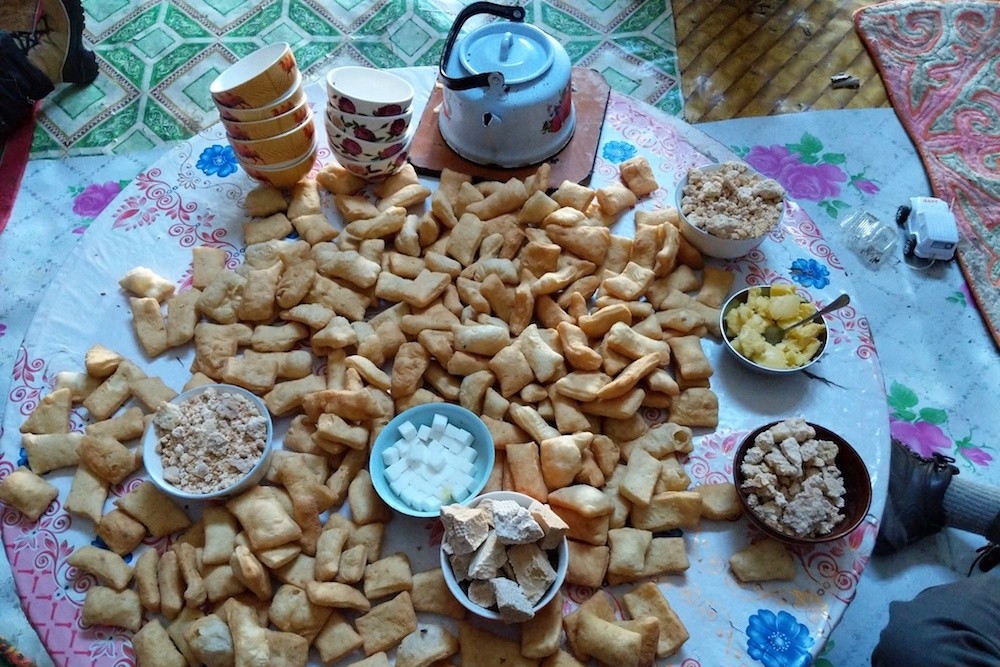
I was amazed at how a family welcomes unexpected guests in Mongolia: with warmth, smiles, tea and snacks. Our guide, Bugina, just knocked on the door of their ger out of the blue one afternoon and asked if 12 American strangers could come in—and they said yes! They asked us if people would welcome unexpected guests the same way in America…
Once inside, the gracious multigenerational family (a grandma, a married couple, and three young children) were quick to offer us hot tea and snacks. The rectangles here are fried bread, a staple for nomadic herding families. The family had a giant flour bag full of them and just dumped them out on the table. They were delicious, like donuts but not oily or sweet. At the 3 o’clock position is a bowl of fresh butter from their own cows, who were milling around outside. You smear butter on the bread and top it with a sugar cube. The other four bowls are varieties of dried milk curd; it’s chewy and bland and leaves a fatty film on your tongue. At the top is a kettle of salted milk tea, which we drank out of bowls, toasting with our hosts.
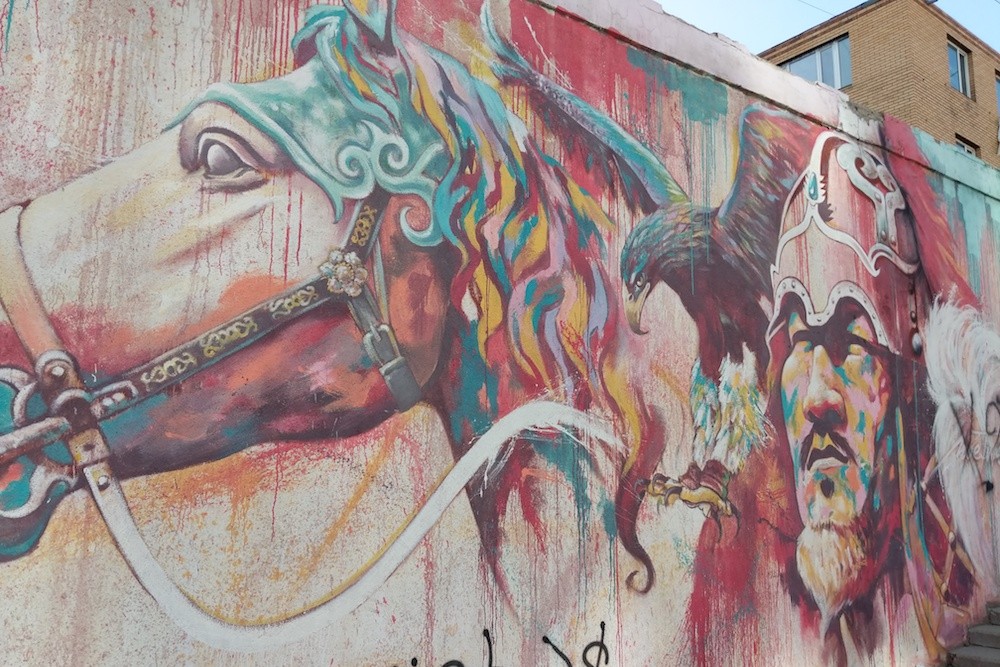
I am no expert, but I love art, design, and architecture. So no matter where I travel, I find a few tours or experiences on those topics. In UB (what locals call Ulaanbaatar), I signed up for a street-art tour through AirBnB Experiences, and spent a wonderful sunny morning walking through the city with a university student who had a personal love for murals and painting. Not only did he show me street art I never would have found or understood on my own (such as a portrait of Mongolian poet Choinom who was persecuted by the Communists, and a timeline of UB that depicts today’s skyline and goes all the way back to Genghis Khan and the country’s early clans and herders; see more photos in my Instagram post), but I got to hear about his own life as a teenager, find out the coolest coffee shops to hang out in, and learn about his volunteer efforts and his family filled with artists. After that adventure in the punk/DIY art scene, I got to dip my toe into the city’s art-gallery world as well, when Jalsa arranged for a painter to lead a personal tour of his current exhibition, and topped it off with an interactive presentation by a calligraphy artist.
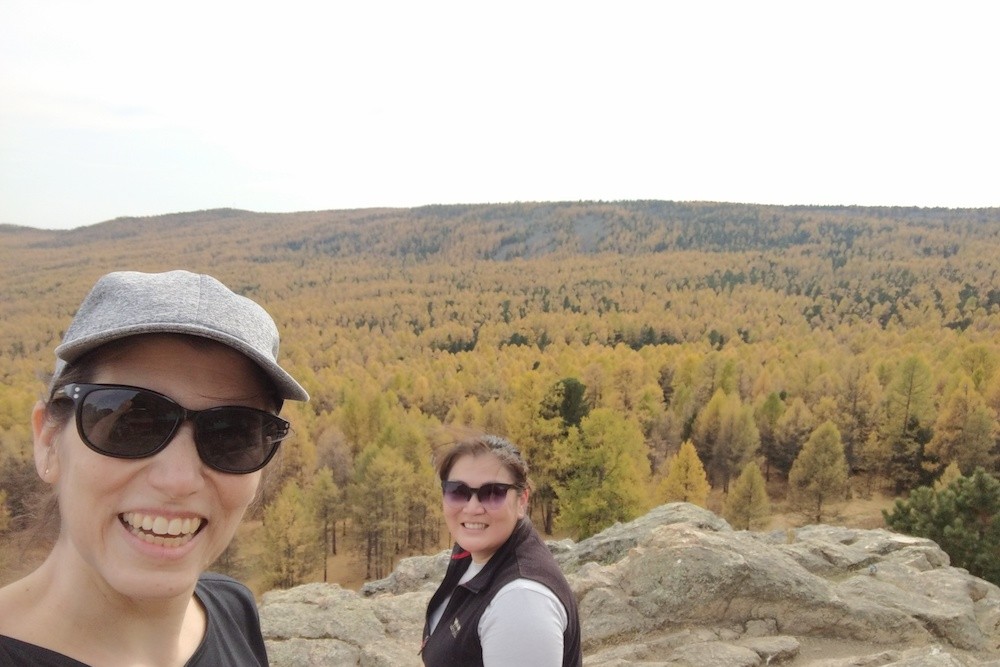
Before I arrived, I’d seen pictures of eagle hunters galloping through Mongolia’s steppe, and of camels trekking through the Gobi Desert. But I didn’t realize there’d be sprawling forests too. So when Bugina led me to a mountaintop temple near Karakorum (the 13th-century capital of the Mongolian Empire), I was in awe of the country’s diverse landscapes. The most memorable part of the hike, though, was the time she and I spent becoming friends. Bugina made sure I understood the cultural and spiritual significance of the site, but as we walked, we also started to understand each other: our lives, our loves, our work, our play, our successes, our challenges, our favorite music and karaoke songs, what it was like to live in Ulaanbaatar, what it was like to live in New York. We ended up so engrossed in conversation that we veered off the trail at some point and ended up having to blaze our own path down through the trees. I’m still laughing about it, and I’m still regularly in touch with Bugina. In fact, we have a video call this week.
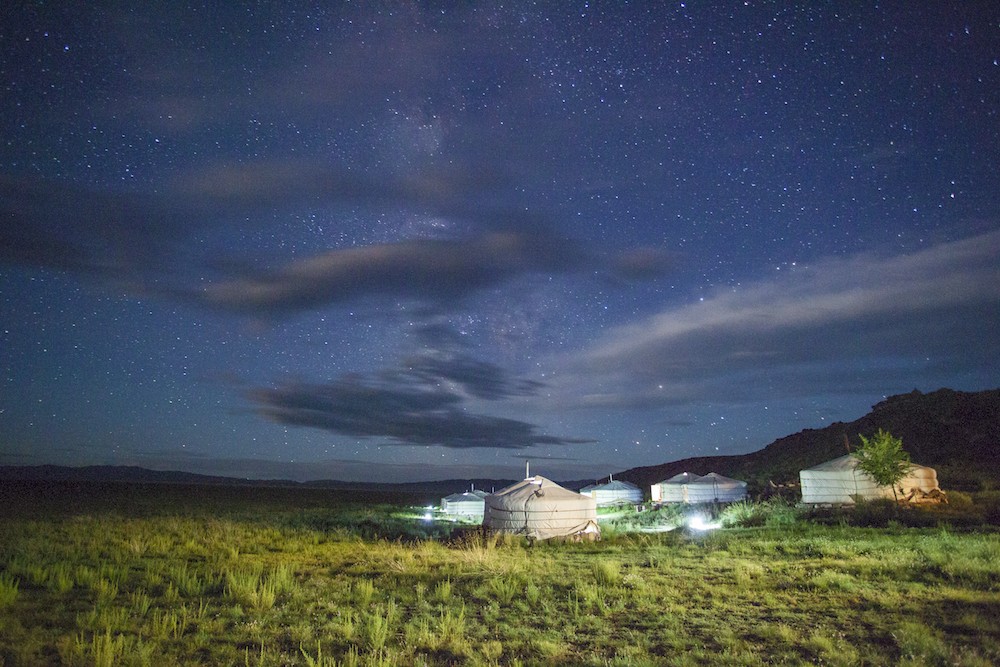
Photo: Three Camel Lodge/Steinberg
As I said, the stars are one of the reasons that Mongolia had taken over my imagination. And when we got to his Three Camel Lodge in the Gobi Desert, I was not disappointed. Jalsa likes to joke that it’s a “5-billion star hotel,” and despite that groan-worthy pun, he’s so right. The lodge is a collection of gers, Mongolia’s ingenious mobile homes built out of a lattice fence formed in a circle, topped off by peaked rods, and entirely covered with wool and canvas. A support pole in the center doubles as a chimney for a wood stove that heats the tent so thoroughly that I occasionally had to crack my door open at night and let in some of the 30-degree air. These gers are luxurious, with private stone bathrooms and comfy big beds, and the grounds offer a few common areas to hang out in, including a small movie theater and a living room/bar with fluffy couches and a telescope. The whole lodge is eco-friendly (solar-powered, equipped with compost and recycling, and nearly plastic-free), and has won awards for its sustainability. The lodge’s mission also includes community integration, so there’s a well on the property where herders come to water their animals (and we guests get to observe the natural rhythms of life out in the desert). There’s also a program to support a local school and artists (so we were treated to a few special concerts and performances), and everyone who works at Three Camel is Mongolian (so we had a chance to overcome that tourist-local barrier in yet another way). The best part is that the lodge feels like it’s in the middle of nowhere—just clean air and clear skies as far as the eye can see. And at night…sigh. This is the only photo that I didn’t take myself, because my phone could not capture it. I got this one from Jalsa’s team, and it’s close to what I experienced, but it still doesn’t really convey the full beauty of all those stars. You’ll just have to go to Mongolia for yourself.
Be a safer, smarter traveler: Sign up for Wendy’s weekly newsletter to stay in the know. And read real travelers’ reviews of Wendy’s WOW List and use it to plan your next trip.
Full Disclosure: Nomadic Expeditions provided this reporter with a discounted group trip. WendyPerrin.com did not promise any editorial coverage, and there was no quid pro quo. Our policy when accepting discounted or complimentary trips is to use the opportunity to test out experiences; if they meet our standards and we feel there is value for our readers, we will cover them. For further input about Mongolia trips arranged by WOW List Trusted Travel Expert Jalsa Urubshruow, read these reviews of Jalsa’s trips written by WOW List travelers.

